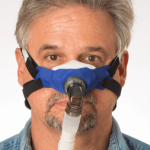Summary: A University of Bristol-led analyze, released in BMJ Open up, identified discrepancies between principal care records and questionnaire facts on sleeplessness signs and symptoms. Among the 29% of participants who described insomnia in the Uk Biobank questionnaire, only 10% experienced their signs or symptoms documented in GP information. The research gives insights into the characteristics of those people with sleeplessness, revealing frequent elements like age, gender, and way of life patterns. It underscores the relevance of GP documents in determining hidden scenarios and improving upon insomnia-linked wellness analysis.
Critical Takeaways:
- Only 10% of the 29% of participants who noted insomnia symptoms in a questionnaire experienced their signs documented in GP data, indicating underreporting.
- Above a quarter of contributors who experienced insomnia signs or symptoms recorded in their GP documents and an accompanying prescription for sleeplessness treatment didn’t report obtaining insomnia indications in the United kingdom Biobank questionnaire.
- The review found similarities concerning those people reporting insomnia in questionnaires and individuals documented in GP documents, including getting more mature, woman, and possessing poorer actual physical and psychological wellness.
Main treatment knowledge can give distinctive insights into prevalent wellness circumstances, new investigation seeking at insomnia symptom prevalence in England has shown.
The College of Bristol-led study, printed in BMJ Open, also highlights the worth of increasing accessibility to this facts for potential well being research.
Examine Explores Usefulness of GP Records
The research aimed to check out how beneficial standard practitioner (GP) data are in measuring how several persons experience insomnia signs or symptoms. The researchers employed details from the Uk Biobank, a database which is made up of overall health, genetic and way of living info on all-around fifty percent a million contributors.
The analysis crew straight as opposed the proportion of English contributors reporting insomnia indications in a questionnaire completed when they signed up to the Uk Biobank to the very same people’s linked GP records.
Discrepancy Involving GP Documents and Questionnaire Details
The research uncovered 29% of the sample noted possessing insomnia signs. Of those, only 10% experienced sleeplessness signs or symptoms documented in their GP documents. Most notably, the analysis also unveiled that around a quarter of folks who had sleeplessness indications noted in their GP record in the month quickly prior to they completed the British isles Biobank questionnaire, and had an accompanying prescription for sleeplessness treatment, did not report possessing insomnia signs or symptoms in the questionnaire.
This could be thanks to the stigma related with owning insomnia or simply because medication lowered the indications. Either way, it indicates that GP knowledge can enjoy a crucial job in figuring out persons with insomnia who are not captured by questionnaire facts.
Traits of Sleeplessness Clients Recognized
The researchers observed that quite a few of the characteristics of persons browsing their GP with insomnia indications had been very similar to those people reporting sleeplessness symptoms in the questionnaire. These involved getting female, more mature, having poorer actual physical and psychological wellness, smoking, owning a large caffeine intake, and doing little work out.
Even so, sleeplessness instances identified in the GP information ended up more possible to report snoring. This could be thanks to the reality that insomnia and obstructive rest apnea, of which loud night breathing is a symptom, frequently happen with each other.
“GP records provide wealthy longitudinal knowledge on widespread health ailments that are not necessarily picked up by other details sources. Working with GP details that was straight joined to the British isles Biobank enabled us to get detailed insights into the properties of those struggling from insomnia. This data has massive likely to enhance our being familiar with of quite a few other well being ailments treated by GPs, which include melancholy, diabetic issues, panic, and arthritis,” claims Melanie de Lange, a Wellcome Belief-funded epidemiology PhD student in the Bristol Medical University: Populace Overall health Sciences and MRC Integrative Epidemiology Device, and study author, in a release.
Importance of GP Data for Research and Intervention
The examine findings propose that, in addition to supplying a practical evaluate of the impact of insomnia on Nationwide Well being Service (NHS) resources, United kingdom Biobank GP information are a beneficial resource of info for scientists seeking to examine the possibility elements for sleeplessness.
This is particularly practical when these threat things are life style options, these kinds of as smoking cigarettes or exercising, that could be targets for interventions to assistance avert or decrease insomnia signs or symptoms. As insomnia alone has been connected to a variety of other health and fitness challenges, like despair, dementia, and diabetes, this could have a helpful effect on people’s wider health.
Barriers to Accessing Entire GP Knowledge
Currently connected GP facts is only readily available for fewer than 50 % of Uk Biobank participants. This is in spite of members supplying consent for Uk Biobank to obtain their clinical documents when they signed up more than 15 yrs ago.
The release of details is, at current, managed by person GPs who may possibly not have the time to do so or might be worried about regulations surrounding sharing the data. It is hoped that in the long term all participants’ GP data could come to be accessible centrally by using NHS Electronic. This would enable accelerate investigation into the huge array of frequent wellness situations managed in major treatment, in accordance to the researchers.
Photo 99343616 © Ammentorp | Dreamstime.com





Leave a Reply